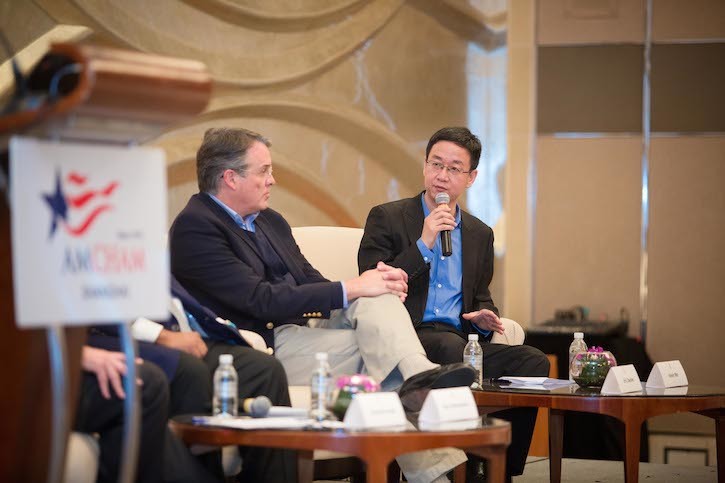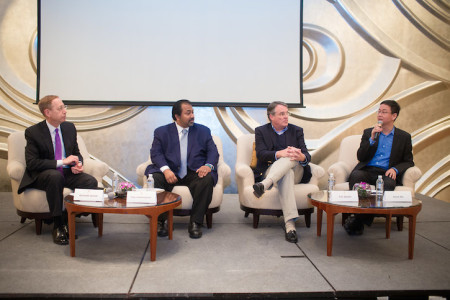
Paulson Institute Managing Director for Climate and Sustainable Urbanization Dr. Kevin Mo joined the first in a series of panels co-hosted by AmCham Shanghai and the US-China Business Council (USCBC) examining the impact of China’s 13th Five-Year Plan, in particular the opportunities and challenges it presents for American businesses.
 Dr. Mo joined Economist Senior Correspondent Vijay V. Vaitheeswaran and Cardinal Health China Chairman Eric Zwisler in a panel discussion that followed a presentation by KPMG China Partner for Market Strategy David Frey, who spoke about the development and content of the plan and what the business community can expect to be the immediate and medium term impacts to be.
Dr. Mo joined Economist Senior Correspondent Vijay V. Vaitheeswaran and Cardinal Health China Chairman Eric Zwisler in a panel discussion that followed a presentation by KPMG China Partner for Market Strategy David Frey, who spoke about the development and content of the plan and what the business community can expect to be the immediate and medium term impacts to be.
Frey outlined the five focus areas that the Chinese government has highlighted as key priorities under the new FYP: innovation, coordinated development, green development, opening up, and inclusiveness. He emphasized China’s continued focus on 6.5 percent economic growth, while also trying to achieve certain development and environmental goals and targets. Frey added that opportunities will continue to exist for American companies in China, but that the landscape will continue to evolve throughout the duration of the FYP.
The panel discussion covered the roles that healthcare, environment and innovation will play in the new FYP. Dr. Mo explained that the plan includes a number of significant measures to help China achieve its carbon emissions targets. For example, the plan includes for a first time a cap on overall energy use, not just coal consumption, and the government has committed to boosting renewable energy consumption to 20% of the total by 2030.
“It’s important to note that the government is putting tremendous new emphasis on energy and environmental issues in the new Five Year Plan,” Dr. Mo said. “What’s exciting is that the government is taking an integrated approach, tackling air quality, climate change, and the development of a new model of growth together instead of treating them as separate issues.”
Dr. Mo also emphasized the alignment between the government’s economic plans – to shift from reliance on exports and state-led investment in giant infrastructure projects to focus on services-driven growth and consumer demand – and environmental goals. “Many doubt whether China can achieve its climate goals during the economic downturn. Actually, it’s an opportunity for sustainable economic transition which will actually help China achieve its environmental and energy-related goals,” he said.



